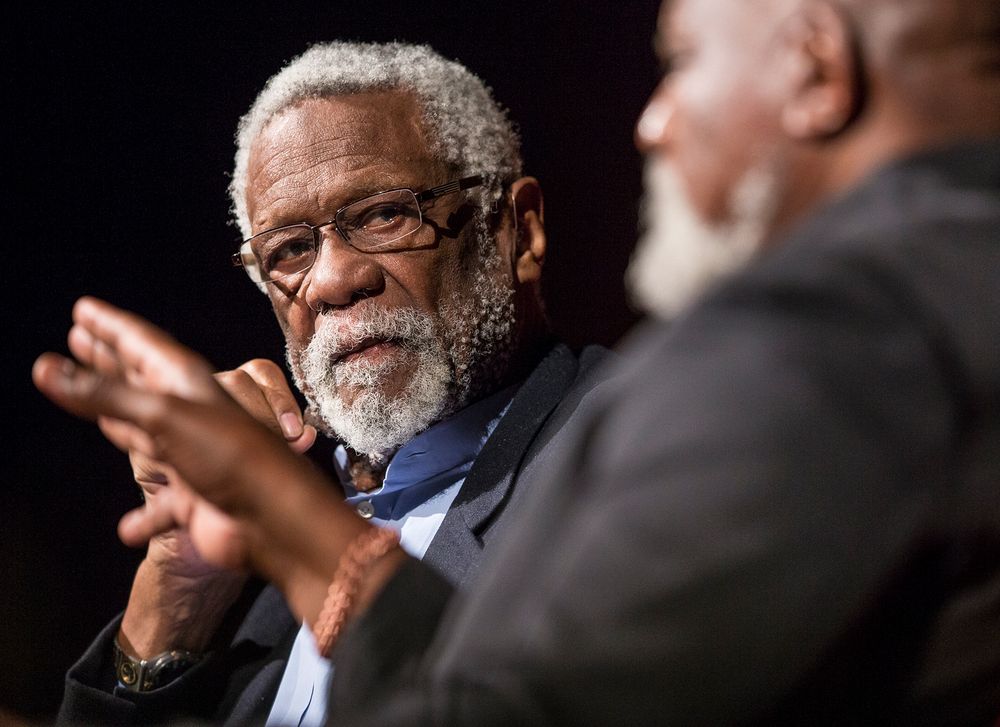I’ve been in the same room as Bill Russell on a half-dozen occasions. I supposed you could take off points for those rooms being arenas that seated between 12,000 and 20,000 people. But I get extra points given the arenas weren’t full, and once I was within 10 feet of him. Russell, who died on Sunday at the age of 88, was known for not signing autographs, and I really didn’t have anything to say to him, so I just let him be.
The times I saw the Boston Celtics legend were always at basketball games. Not NBA games, but small conference tournaments like the MEAC, CIAA, or the NCAA Tournament early rounds. Sometimes he was with others, like former teammate John Thompson, the late coach of the Georgetown Hoyas. Other times he was alone. He always seemed relaxed, watching the game when it suited him or chatting with an old friend.
While at the moment, I had nothing to say, looking back, there are some things I wished I had said. I may have been in high school when I read, Go Up For Glory, an autobiography covering Russell up to that point in his career. I learned about the two national championships he won while at the University of San Francisco, in addition to his Olympic Gold Medal. Add those to his eleven NBA championships, including two as player-coach (the first Black coach in the NBA). He is the winningest basketball player of all time. But I wouldn’t have asked him about any of that.
I wished I’d thanked him for standing up and being a man when the easier path would be to say and do nothing.
I wish I’d asked him about his involvement in the civil rights movement, especially while living and working in Boston, which was as hostile a racial environment as one can imagine. I’d ask about when a Lexington, Kentucky restaurant refused to serve him, and the entire team left, boycotting the exhibition game the Boston Celtics were supposed to play that night. I’d ask how he felt when segregated hotels in North Carolina refused to provide lodging to his team. How did it feel being booed by White students while in college? What was it like joining forces with other prominent athletes in support of Muhammad Ali when the government lined up against him?
I wished I’d thanked him for standing up and being a man when the easier path would be to say and do nothing. Bill Russell didn’t sign autographs, rarely posed for pictures, and didn’t smile for the fans. He knew many—if not most—of the fans were hypocritical, and while they might grin in his face, they were the same ones who criticized him behind his back. The FBI opened a file on Bill Russell, partly because he was “an arrogant Negro who wouldn’t sign autographs for White children.”
The first time I saw Russell in person was more than 20 years ago; the last time, maybe 10. I would have loved to have chatted with him on a number of topics but respected his desire to be left alone. He was one of the first Black athletes to be respected for his mind as well as his talent, the first Black NBA coach to win a title. Bill Russell was a champion both on and off the court. He stood his ground in defense of his people, standing up to fans, reporters, and politicians.
I most regret not the questions I failed to ask but for not simply saying thank you. Better late than never: Thank you, Bill Russell.
This post originally appeared on Medium and is republished with author's permission. Read more of William Spivey's work on Medium.
